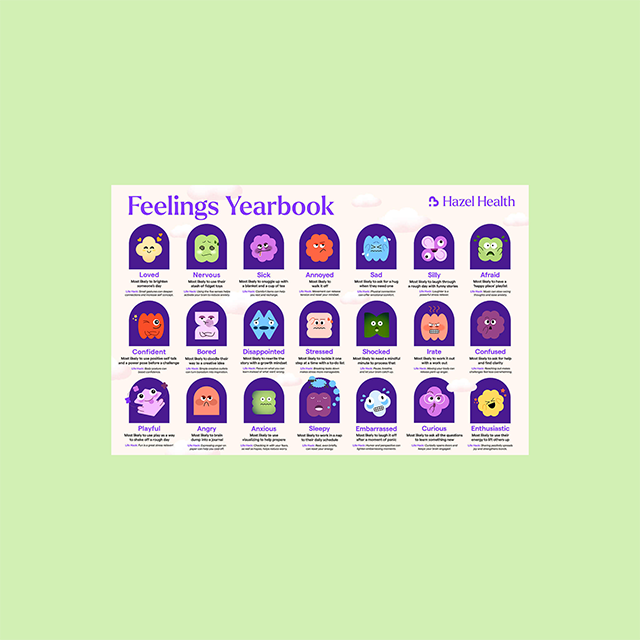Cultural competency refers to the ability to provide care to patients with diverse values, beliefs, and behaviors, including tailoring health care delivery to meet patients' social, cultural, and linguistic needs. A culturally competent provider understands, appreciates, and respects their patient's cultural background. To be culturally competent is more than being aware of cultural differences. It is the ability to understand, communicate, and effectively interact with people across cultures.
The importance of cultural competence
In health care delivery, practicing cultural competence means adapting care to fit the patient's social, cultural, and language needs. An individual's (or their family's) cultural background affects their health beliefs, treatment/healing practices, and how they view and navigate the health care system. When medical providers understand these beliefs, values, traditions, and practices, they are more likely to foster adherence and trust, resulting in increased patient satisfaction, improved health outcomes, and reduced health disparities.
Per the CDC, the principles of cultural competence include:
- Define culture broadly
- Value clients' cultural beliefs
- Recognize complexity in language interpretation
- Facilitate learning between providers and communities
- Involve the community in defining and addressing service needs
- Collaborate with other agencies
- Professionalize staff hiring and training
- Institutionalize cultural competence
In the United States, patients of color are less likely than White patients to report being the same race as their healthcare providers. 22.2% of Black adults report being the same race as their health care provider, compared to 73.8% of White adults. Additionally, less than one in four, or 23.1% of Hispanic/Latinx adults, report sharing a racial, ethnic, or language background with their usual health provider.
Research supports that patients prefer providers who understand their unique needs–one study from Stanford University found that Black men were more likely to talk about their symptoms and concerns with a black doctor. Another study found that Hispanic people in the US often delay going to the doctor because they do not understand how to navigate the healthcare system.
These disparities have negative implications for patient health outcomes and patient-provider relationships. To reduce these disparities, providers must consider their patients' social and cultural backgrounds and put a critical emphasis on understanding a person's unique culture and how it contributes to how they experience health care.
“When we’re sick, we’re at our most vulnerable state. It is essential to be able to connect with someone who looks like us, someone who talks like us, and someone who understands us.”
- Marie-Claire Timothee, Hazel Health Physician Associate
In pediatric care delivery, cultural competence goes a long way. It's helpful for children to have access to providers that look, speak, and share values similar to theirs. A culturally competent provider makes the child feel more comfortable and open to sharing their feelings and symptoms, and makes the family feel more comfortable in seeking care.
How cultural competence influences health outcomes
Culturally competent care is a powerful tool that providers can practice to ensure all patients get the care they deserve. Practicing cultural competence care in health care can lead to the following:
- Increased patient safety and engagement
- Reduced care disparities
- Improved health outcomes
- Enriched patient experience
Cultural competency breaks down barriers and enables improved communication between providers and patients. To best refine their cultural competence, healthcare providers should consider offering interpreter services, recruiting minority staff, and offering cultural competence training.
A lack of cultural competence can significantly impact a provider's ability to care for their patients effectively. Whether a language or a cultural barrier, medical professionals must take steps to strengthen their cultural competence and emphasize this essential component of effective care delivery.
A culturally competent provider has the following:
- An understanding of their own culture (it's difficult to understand another's culture if you don't understand your own)
- A willingness and desire to learn about the culture and worldviews of others
- A positive and inclusive attitude towards cultural differences and a readiness to respect and work to understand those differences
Cultural competency at Hazel Health
At Hazel, we believe every child deserves to be seen, heard, and cared for, and we know that to achieve the goal of equitable care, our providers must reflect and understand the communities they serve. Our care team includes diverse mental and physical health providers who are experts in the needs of children and teens.
Our provider force is staffed to reflect the communities they serve. Hazel providers speak over 15 languages, which enhances communication between the child and their Hazel provider, ensuring nothing is lost in translation or misunderstood due to a language barrier.
On the value of having a provider of the same race
“I was feeling apprehensive. I wasn’t sure if I was making the right decision for my kids. They were not on board at first with therapy. It went really well. The Hazel therapist was wonderful! It was a lot easier than I thought. The therapist was so easy to talk to. I was thrilled that she is a Black woman. I was hoping for a doctor that my children can relate to. I’m incredibly grateful for her, and this program.”
Parent of a high school student,
Aurora Public Schools
Prioritizing cultural competency across settings
Practicing cultural competence is paramount in promoting healthy development in children of all ages. It is essential to provide high-quality care to patients of all backgrounds, especially those from historically marginalized communities.
“Cultural competence improves interpersonal interactions, helps to build trust, conveys respect, reduces biases that may lead to inaccurate diagnoses and treatments, and increases the chances that patients may be more compliant with the medical recommendations given."
- Dr. Luz Maria Garcini, assistant professor in the Department of Psychological Sciences at Rice University, faculty scholar for the Center of the United States and Mexico, Baker Institute for Public Policy
Providers must develop an awareness of their implicit biases and an understanding of how an individual's cultural background influences how they experience health care. Until providers are culturally competent, healthcare in the United States will not be equitable, and disparities will continue to persist.





